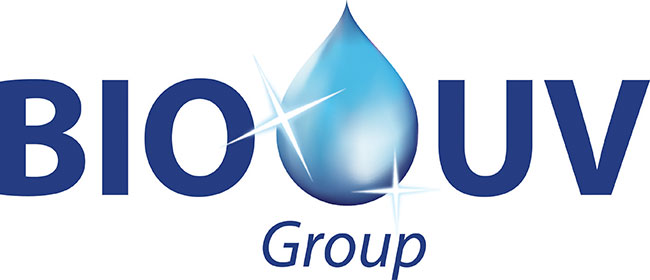
Products
Shrimp
Systems management
Technology
Bio-UV: Save your production!
August 1, 2023 Sponsored by BIO-UV Group 

Water quality has a significant impact on the aquaculture industry. Water control and treatment are essential to ensure the health and growth of fish, mollusks, or crustaceans present in the hatcheries and RAS. In hatcheries, water quality and cleanliness are of critical importance. At the start of their lifecycle, animals are particularly sensitive and susceptible to disease outbreaks. In recirculating aquaculture systems (RAS), nutrients in the water chemistry cause serious health hazards for the fish. A deterioration in water quality increases the risk of bacterial and viral proliferation, responsible for diseases.
To minimise the loss caused by these harmful micro-organisms, to prevent the proliferation of algae, the development of diseases in the water, and to improve the living conditions of the fish, it is important to effectively treat the water.
Bio-UV Group’s technologies are able to enhance water quality in the tanks, reproducing natural ecosystems.
Aquaculture production of shrimp is a business that has expanded from Asia to the rest of the world. This industrial monoculture is highly susceptible to disease. White spot syndrome (WSS) (or Whispovirus) is the most widespread virus in shrimp farming, it can affect crustaceans, particularly shrimp and prawns. WSS has significantly impacted the global aquaculture industry, leading to widespread mortalities and economic losses.
Infected crustaceans typically exhibit several characteristic symptoms. The most prominent sign is the appearance of white spots or patches on the exoskeleton, giving the disease its name. Other symptoms may include lethargy, reduced feeding activity, abnormal swimming behavior, soft shells, and high mortality rates.
This virus can be transmitted through various means, including direct contact with infected organisms, contaminated water or equipment, and ingestion of infected tissues. The virus is robust and can survive outside a host for extended periods, allowing it to spread easily.
WSS has had devastating effects on the aquaculture industry worldwide. Outbreaks of the disease can lead to mass mortalities, with affected farms experiencing significant financial losses. The virus spreads rapidly and can cause up to 100% mortality within a short period, resulting in the collapse of shrimp farming operations.
Shrimp farming is also sensitive to bacteria such as vibrio genus, mycelium, and others.
To prevent the spread of viruses or bacteria and limit production losses, laboratory and hatchery water in shrimp farms must be treated during shrimp development, before being transferred to natural ponds.
Adapted treatments for saltwater with UV-C or ozone
BIO-UV Group proposes UV-C or ozone solutions to meet all water challenges in terms of water: salinity, quality, temperature, etc. It allows to propose a water treatment perfectly adapt for aquaculture industry in terms of cost, energy and disinfection.
The group offers a full range of UV reactors capable of eradicating viruses and bacteria in salt water without any by-products. BIO-UV Group reactors has been specially designed for seawater treatment needs, with anti-corrosive coating.
BIO-UV Group’s products are already installed and successfully operating in Madagascar and Vietnam shrimp farms.
Reactors are located downstream of the filtration circuits and continuously treat the flow rate at each pass, according to the turbidity and transmittance of the water.
By its germicidal effect, all micro-organisms are eradicated without any chemicals: the water is naturally disinfected, perfectly healthy, and secures your shrimp production.
As nature’s most powerful oxidant, BIO-UV Group’s Ozone solutions are another simple and effective way to treat water in an environmentally sustainable way, optimizing water consumption and quality by breaking down a wide variety of contaminants.
Following application, Ozone has the unique property of breaking down spontaneously into its original form, Oxygen, so it supports increased dissolved Oxygen levels, simulating natural waters in healthy ecosystems, for optimum fish health and yield. It also acts as a flocculant and general water conditioner, to produce crystal clear water with no smell or taste (a benefit that is transferred to the quality of the final product on the customer’s plate!). Suitable for both general disinfection and improving overall water quality, Ozone can be combined with UV for multi-barrier disinfection, optimizing of dose rates, and combining the unique advantages of both technologies.
Triogen® PPO3 ozone generators
With expertise developed over more than 35 years, and a drive to provide the most effective and sustainable water treatment solutions, triogen® by BIO-UV Group is expanding its new PPO3 ozone generator range for the aquaculture industry, with a capacity now capable of producing up to 1.2 kg/hour of ozone. The latest Ozone generation systems incorporate advanced safety and operational features, plus state-of-the-art communications and connectivity, all designed and manufactured in-house.
To learn more about BIO-UV Group, visit www.bio-uv.com or contact export@bio-uv.com.
Print this page
Advertisement
- Stolt Sea Farms to expand its land-based flatfish hatchery
- Portable system to democratize sustainable aquafarming in the Philippines





